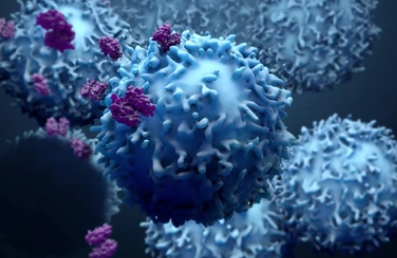In a research report entitled “Specific inhibition of the Survivin – CRM1 interaction by peptide modified molecular tweezers” published in the journal Nature Communications, scientists from Eisen University in Duisburg and other institutions revealed how to turn off the “survival protein” in cancer cells through research. Proteins can control almost all the key physiological processes in the body cells. If they do not function normally and become more or less,…
Author: biomart
“New Partner” of PD-1 Antibody: Fusion of IL-21 Improves Anti-tumor Efficacy
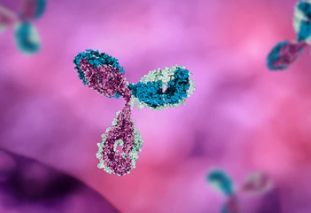
PD-1 inhibitors restore the activity of tumor-responsive CD8 + T cells by eliminating the inhibition induced by PD-1 and PD-L1 interaction. This therapy has brought great changes to cancer treatment, but only a few patients can benefit from this therapy. There is evidence that the lack of effective T cell activation may be one of the reasons. In a study published in nature communications, researchers from the Institute of…
New Co-stimulatory Signal Enables CAR-T to Show Its Potential in the Treatment of Solid Tumors
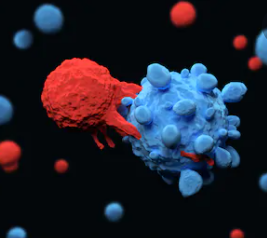
Chimeric antigen receptor (CAR) expressing T cells (CAR-T therapy) is one of the major breakthroughs in the field of cancer treatment in recent years, and has achieved excellent results in the treatment of blood cancer. CAR is like a “GPS navigation system” for T cells, so that T cells can quickly locate tumor cells that are good at camouflage, so as to find and kill them. So far, two CAR-T…
AIM2 Can Regulate the Normal Function of T Cells and Play a Key Role in Reducing Autoimmune Diseases

Many of the molecules in our body help our immune system stay healthy without overreacting to cause problems for our immune cells, such as autoimmune diseases. There’s a molecule called AIM2 that’s part of the innate immune system that fights pathogens and keeps you healthy. However, little is known about the function of AIM2 in T cell adaptive immunity, which is an immune defense against specific pathogens and health problems…
Blocking the Effect of ATM / ATR on Serine tRNA Synthetase can Reduce Tumor Growth
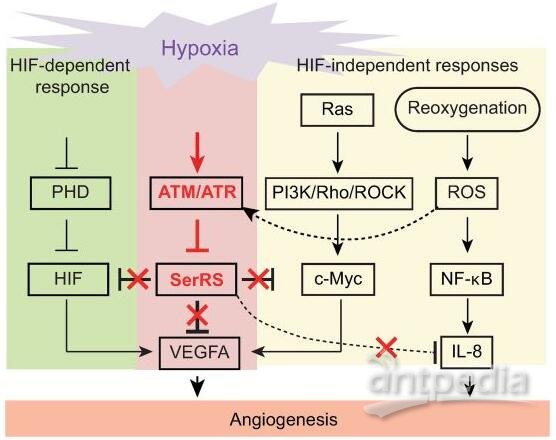
Most organisms need oxygen to grow and develop, even cancerous tumors. That’s why in the absence of oxygen, tumors can easily grow new blood vessels, creating a new lifeline for survival. In a new study, researchers from Scripps Institute and Nankai University in China have pinpointed the molecular mechanisms that make this happen, and provided scientific insights, making it possible to develop drugs that help kill tumors and prevent…
Protein ABCB1 Warps and Squeezes Make Cancer Resistant
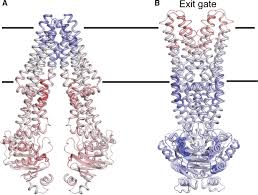
In 1986, Kazumitsu Ueda, a Japanese cell biochemist, discovered that a protein called ABCB1 can transport a variety of chemotherapy drugs from some cancer cells, making them resistant to treatment. How it did this has been a mystery for the past 35 years. Now, Ueda and its team published a review article entitled “ABCB1 / mdr1 / P-GP employees an ATP-dependent twist- and -squeeze mechanism to export hydrophobic drugs” in…
New Research Reveals the Mutation of Cholesterol Transporter ABCA13 Associated with Schizophrenia
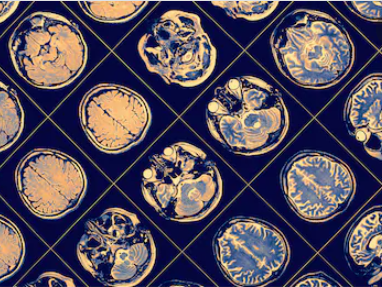
Scientists have long suspected that the mutation of cholesterol transporter ABCA13 in cells is related to mental illness, but it is difficult to prove this, and it is difficult to determine how it occurs. Now, in a new study, researchers from Kyoto University and other research institutions in Japan have provided evidence that mice with ABCA13 protein damage exhibit characteristic behavior of schizophrenia. They studied the function of ABCA13 and…
Research reveals that the endoplasmic reticulum P5A ATPase/CATP-8 maintains the “identity” of the endoplasmic reticulum by removing ectopic proteins

The correct positioning of membrane proteins on the corresponding organelles is important for maintaining the specific “identity” and physiological functions of the organelles. The correct positioning of membrane proteins relies on precise protein sorting pathways and requires corresponding mechanisms on organelles to eliminate mislocated proteins. For example, the AAA-ATPase Msp1 of the outer mitochondrial membrane can remove the protein that is incorrectly located on the outer mitochondrial membrane. However, what…
In SARS-CoV-2 Infection and Cytokine Shock Syndrome, TNF-α and IFN-γ Cause Inflammatory Cell Death, Tissue Damage and Death
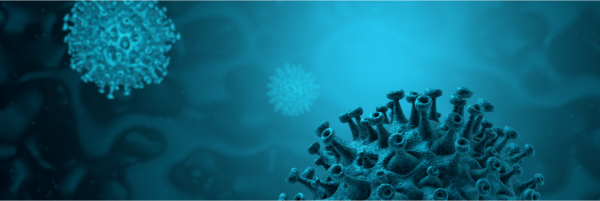
The COVID-19 pandemic continues to cause major illness and death, while treatment options are still limited. In a new study, researchers from the St. Jude Children’s Research Hospital in the United States have discovered a potential strategy to prevent life-threatening inflammation, lung damage, and organ failure in COVID-19 patients. The relevant research results were published in the Cell. The title of the paper is “Synergism of TNF-α and IFN-γ triggers…
Research Reveals Drug Targets for Malignant Prostate Cancer

According to a new study published on Oncogene, the compound thymoquinone (TQ) selectively kills prostate cancer cells in the late stages. Led by researchers at Kanazawa University, the study reported that prostate cancer cells with the SUCLA2 gene deletion can be used as therapeutic targets. Prostate cancer lacking SUCLA2 accounts for the majority of hormone therapy or metastatic resistance, so new treatment options for this disease will bring huge benefits…
